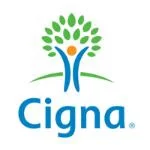Everything expats need to know about Austrian healthcare
Hallo and guten tag! Fantastic news that you've decided to start a new life in Austria. A wonderful world of wiener schnitzel and Mozart awaits you.

But before you find the nearest mountain and start belting out The Hills are Alive, you should learn how the Austrian healthcare system works. After all, you want your lungs in prime condition to hit those high notes.
Registering for healthcare
Those of you moving to Austria for work will have access to the country’s excellent public healthcare system. Hurra!
Each month a contribution will be taken from your tax payment, which is worked out according to how much you earn. This gives you access to basic healthcare including treatment in hospitals, medication, dental care, and some specialist appointments.
Before you receive healthcare your employer will have to register you with the Gebietskrankenkasse, the district health insurance fund, within your first week at work. Your employer is required to match your contribution.
Private contractors also have to register for social insurance through Sozialversicherung der gewerblichen Witschaft (Social Insurance for the Industrial Economy).
Children are automatically covered by their parents’ insurance until they are 21 years old, as are university students until they reach 26 years old.
Once you’re registered, you’ll get a green e-card - your electronic key to public healthcare. If you’re moving with your family, each member will need an e-card for access to healthcare.
It contains some personal information, as well as details about making a claim. The Austrian government uses the card to process claims electronically, which means fewer queues and less admin.
If you’re moving to Austria but currently don’t have a job lined up, you should look into private health insurance to make sure you’re covered.
Providers like Cigna Global offer flexible packages for expats that will cover you if the unexpected were to happen. And what’s more, you’ll get access to shorter waiting times and more services.
Find out more about Cigna Global health insurance
Finding a doctor
Your public health insurance will allow you to visit most doctors in Austria. To find an English-speaking doctor you can call your regional medical association which can advise you on your local medical services.
Your embassy may also maintain a list of English-speaking doctors, this can usually be found on their website. If it’s not there, just give them a call and they should be able to help.
Some councils, like the Vienna City Council, also have a website with a search feature that allows you to look up local doctors by expertise, location, opening times, and languages spoken.
Whenever you see a doctor you’re advised to make an appointment, or termin, as waiting times can be fairly long. If it’s urgent you can show up without an appointment, although take a book because you may be in for a wait.
Regular surgery hours differ, although most are open during the mornings and closed some afternoons. Bear in mind they rarely open on weekends.
Make sure to take along your e-card with you whenever you visit a doctor. By reading the card the surgery will be able to check your insurance status via the health information network, and find out which health insurance institution has to pay for your treatment. It’s all very streamlined and convenient.
Emergency care
If there’s an emergency and you need urgent treatment, don’t worry about whether or not you’re insured. Austrian law requires that people are treated whether they are covered or not; however, be aware you may be charged afterwards so it’s always better to have insurance, public or private.
In the event of hospitalisation, you will be required to pay a certain amount for each day spent in hospital.
If it’s urgent and you can’t get to the emergency room then you should dial the Europe-wide emergency number 112. Response times are mostly good throughout Austria; paramedics generally speak Austrian German although occasionally understand English. So you’d do well to learn a few basic phrases in case of emergency!
Hospitals are also connected to the e-card system, so remember to take it along to any visits. Using the Insured Data Query Service the hospital can get information online from your e-card about your insurance status which speeds up the administration process and maintains a higher level of quality for both patients and hospital workers.
Specialist care
Unlike some other European countries, doctors don’t act as gatekeepers to specialist care in Austria. That means if you want to see a specialist straight away, you can seek one out and make the appointment yourself.
Something to remember: not all specialist care is covered by your public health insurance, and some forms of treatment and examinations do require a referral.
With Cigna Global’s international health insurance you get access to a global network of hospitals, clinics, and doctors so you’re always covered if you or your family needs to see a specialist - no matter the cause.
Get a quote for international health insurance from Cigna Global
Pharmacies
Pharmacies, or apotheke, can be found all over Austrian towns and cities. A word of caution: don’t confuse them with drugstores, drogerie, where you’ll only be able to buy toiletries. So unless you’re in need of emergency deodorant, it’s the apotheke you should look out for!
You should know that some medicines you may be able to get over the counter in your home country could require a prescription, or rezept, in Austria. That’s because prescription laws are very strict; however, some painkillers are still available so don’t rush off to the doctor when you feel a tension headache coming on!
Most of the cost of prescription medicines is covered by your state health insurance, although you will have to pay a charge of €5.85 per item.
Paying for it
Although Austrian public health insurance covers many appointments, treatments, and procedures, private healthcare gives you access to higher standards of care, reduced waiting times, and most of all, peace of mind.
Cigna Global offers flexible expat health insurance options, so you can find a package that suits your situation. Let Cigna take care of your health, so you can focus on settling into your new life.
This article was produced by The Local Client Studio and sponsored by Cigna Global.
This content was paid for by an advertiser and produced by The Local's Creative Studio.

Join the conversation in our comments section below. Share your own views and experience and if you have a question or suggestion for our journalists then email us at [email protected].
Please keep comments civil, constructive and on topic – and make sure to read our terms of use before getting involved.
Please log in here to leave a comment.